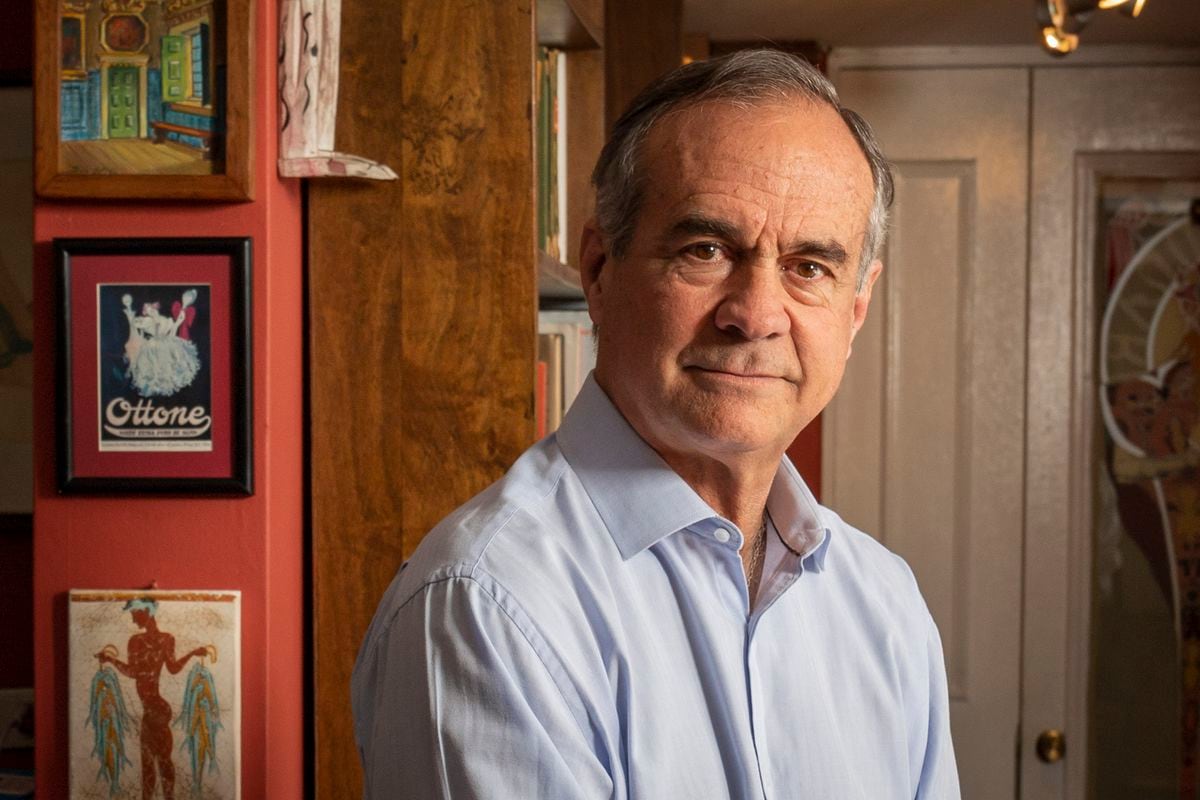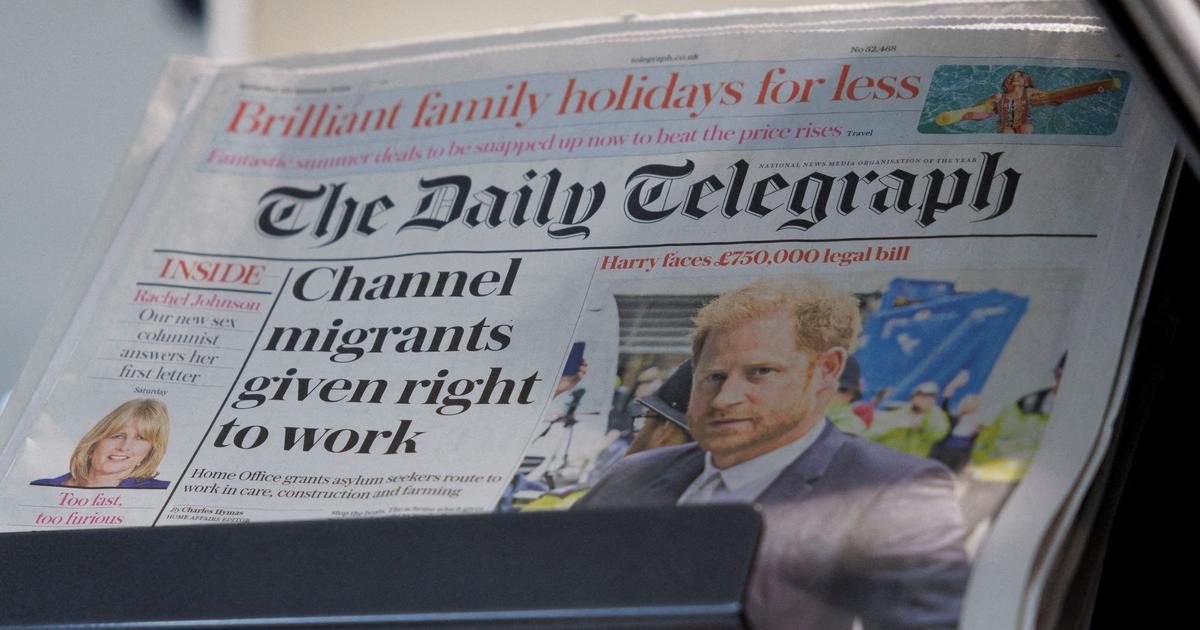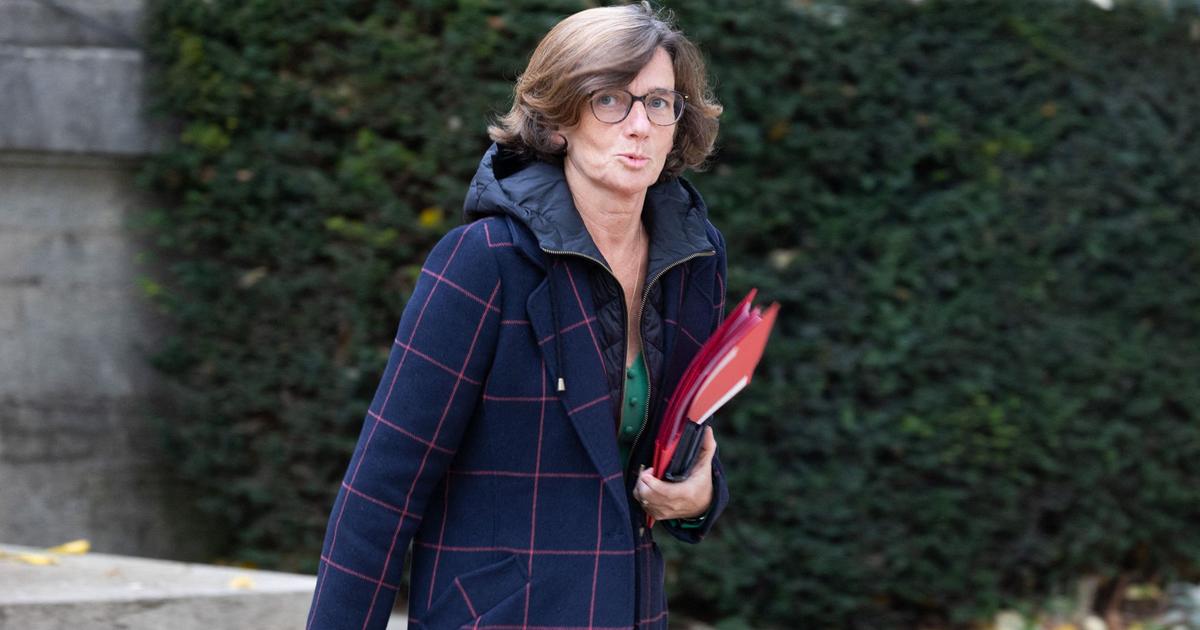"You do not decide who enters!" Exclaimed a man in elegant suit and electric blue tie to the young man who was trying to block his way. It was the opposition leader Juan Guaidó, who had just jumped a fence and was surrounded by parapeted guards behind military helmets and transparent shields. After several months of criticism, Guaido returned to focus international attention on what was happening in his country.
On January 5, the annual election of the Board of Directors of the Assembly should take place, which Guaidó would presumably continue to occupy - for having deputies of majority opposition - but state security forces (under the control of Nicolás Maduro) prevented the entry of parliamentarians opposing the building.
Inside, Chavez parliamentarians and some opposition dissidents - such as the so-called CLAP fraction, a group of parliamentarians involved in corruption scandals - took the opportunity to elect Luis Parra as president of the Assembly, in a session in which they did not reached the quorum of 84 deputies. That is to say: they swore as if they were the new directive, without the minimum requirements. It was a freehand vote that was not registered in a nominal control or in a minute.
Parra had already been expelled from the opposition block for allegations of corruption. The rest was at the gates, trying to jump the fence to enter.
https://twitter.com/Marianitareyes/status/1213902472391151616
Hours later the opponents held an alternative session at the headquarters of the newspaper El Nacional, where they elected Guaidó as president of Parliament with 100 votes. The National Assembly has 167 parliamentarians, elected in December 2015 and with a mandate until 2020.
Guaidó denounced a “coup against the State under the impregnated gaze of the dictatorship,” and even countries closer to Maduro, such as Mexico and Argentina, expressed concern.
On January 6 , Parra began to act as president of the Assembly, ensuring on the social network Twitter that his mission is "to save Parliament from destruction, because no party can be above the Constitution."
In addition, there is another "assembly" in Venezuela, which does not come from a democratic election. This is the Constituent summoned by Maduro in May 2017 to write a new Constitution (something that has not happened) and that theoretically concentrates all the powers of the State, thus annulling the authority of the National Assembly.
On January 7 , Parra began the legislative session with a few dissident opposition parliamentarians and a large representation of the ruling party. It only lasted an hour, but he was able to record a video spreading his slogans before he hurriedly left the premises.
https://twitter.com/LuisEParra78/status/1214586256425988102?ref_src=twsrc%5Etfw%7Ctwcamp%5Etweetembed%7Ctwterm%5E1214586256425988102&ref_url=https%3A%2F%2Fwww.analitica.com%2Factualidad%2Factualidad-nacional%2Fmenos-de- one-hour-hard-parra-presiding-his-parliamentary-session-of-this-Tuesday% 2F
At the gates, Guaidó and the hundred deputies who support him broke the military fence and managed to enter the building to take his oath as president in charge of Venezuela, a ceremony that was done in the dark because the electricity was cut.
"In spite of the violence of a vile dictatorship, in the Parliament one felt a force that advances together," he later wrote on Twitter.
On January 8 , Parra went to the building to grant interviews as president of the Assembly - although he has no legitimacy - while Guaidó called protests on 9, 10 and 11, and asked the Venezuelan people to accompany him to the session scheduled for the 14, in which he plans to exercise the functions imposed on him by the majority of Parliament. So the battle for control of Parliament is not over yet.
Parra has been recognized by Maduro, and the institutions that dominate Chavism as the Constituent, and Russia. Guaidó has the backing of the United States and the Lima Group (14 countries of the continent gathered in 2017 to find a way out of the Venezuelan crisis, among which are Argentina, Brazil, Chile, Colombia, Mexico, Bolivia and Canada).
"The United States will continue to support President Guaidó and the Venezuelan people, and will unite all freedom-loving nations around the world to do the same," said Secretary of State Mike Pompeo.
10 months ago, Venezuela went from having a single president to experience the struggle between two leaders who claim the presidency. Nicolás Maduro was joined by Guaidó, self-proclaimed interim president, recognized by the United States and 50 other countries in charge of the Government waiting for elections that would definitively remove the successor of Hugo Chávez from power.
But those elections did not take place, and the popularity of Guaidó began to be affected.
"A fight for symbols"
This situation further complicates governance in a country sunk in an economic crisis: food and medicine are lacking, annual inflation that, according to the International Monetary Fund, can reach 500,000%, and public services and infrastructure that suffer a patent deterioration .
Why then does the government generate this new crisis, especially when the Supreme Court, under Maduro's control, has issued up to 116 sentences against the Assembly, Guaidó has been disabled for 15 years; and opposition parliamentarians suffer harassment of the state apparatus?
"It's a fight for symbols," explains analyst Luis Vicente León, president of the Datanlisis pollster.
The position of president in charge who assigned himself Guaidó is a symbolic figure, Leon explains, since he lacks territorial control to govern, and the National Assembly now does not legislate because it was disabled and illegalized , in addition to being replaced by the Constituent.
But it does have an extraordinary influence on the international concert, even encouraging US sanctions against Nicolás Maduro, his son, and other government and military officials.
"The country is divided between a reality that believes in institutions, counterweights and their symbols, as with Guaidó, and the regime, which seeks to demolish the lack of institutionality represented by the Assembly," explains María Puerta-Riera, Professor of Science Policies at the Valencia College of Florida (United States).
“That fight is taking place and progressively there will be nothing left. Guaidó is in the Titanic of institutions, ”he concludes, referring to the sunken ship.
The Venezuelan "perestroika"
This year also, "sooner rather than later," legislative elections should be held, Maduro said.
"It's confusing, as always happens with Chavismo, because with this you strengthen the opposition and give it oxygen," says Colette Capriles, an academic at Simón Bolívar University. "I think the government fears that if Guaidó and the opposition are left to work , without further intervention, they could organize themselves well for legislative elections and, after that, it is very difficult to avoid thinking about presidential elections."
The opposition demands a new board of directors of the National Electoral Council that guarantees free and transparent elections . Months ago, Maduro convened a dialogue table with minority opposition movements to reach an agreement; Now, with the appointment of Parra, he could hasten to elect new electoral authorities without the participation of Guaidó and the movements that support him.
"The Government set up a parallel board of directors in the National Assembly to subtract institutional power and legitimacy, in addition to fragmenting the opposition leadership," says Piero Trepiccione, an expert in Political Science and a member of the Gumilla Center.
"You have to look further, Maduro wants to please the demands of Russia since he has business with that Government and for geopolitical reasons," he adds.
On December 31, Sergey Storchak, Russian Deputy Minister of Finance, claimed to have made "a series of suggestions to eradicate distortions" in the crude oil industry. This business has been commissioned by Maduro to Russian companies such as Rosneft and Gazprom, but only the National Assembly can legalize this, since it would imply privatization in a nationalized sector.
“From the point of view of the Government, as long as they have a recognized and belligerent opposition they will have a permanent threat ,” says Colette Capriles, which “prevents a plan of strong reforms, especially economic ones, that the government already has Government. What is coming is a kind of perestroika. ”
The opposition to the elections
"The call for elections divides the opposition because the radicals will say that it is impossible to participate without electoral conditions, and many of the parties that support Guaidó will not want to be in that contest," warns Leon. “The moderates will say that we must participate because the opposition is a majority. That would cause the opposition to fracture and the Government to win without the need to cheat except for abstention and divisions, ”he foresees.
However, the current crisis could favor Guaidó after the fall in its popularity, which, according to data from Datanlisis, went from 61% in February to 38% in December. "Courage is always rewarded," says Leon. "But it has the challenge of fulfilling its great objective that is to change government, if that does not happen, these recoveries are ephemeral."
Against him weighs that "citizenship ended 2019 very worn out, " according to analyst Mariano de Alba, and may not have regained faith in the opposition, that "seems to continue relying on the military to achieve the transition of power."
Capriles outlines another hypothesis, in which Maduro could initiate a transition to a softer model, as happened in China with Deng Xiaoping: “It is not only that the Russians are pressing, Maduro's group seems to believe that if it does not accommodate the country is going to miss a historic opportunity and have very pragmatic reasons to change. ”
"The reforms they could raise will have the worst resistance among their own people," he predicts, and "carry great political costs that can knock Maduro down . But it seems they want to do them. To believe otherwise is to assume that they went crazy and want to end all opposition, but I think there is deeper logic in this. ”


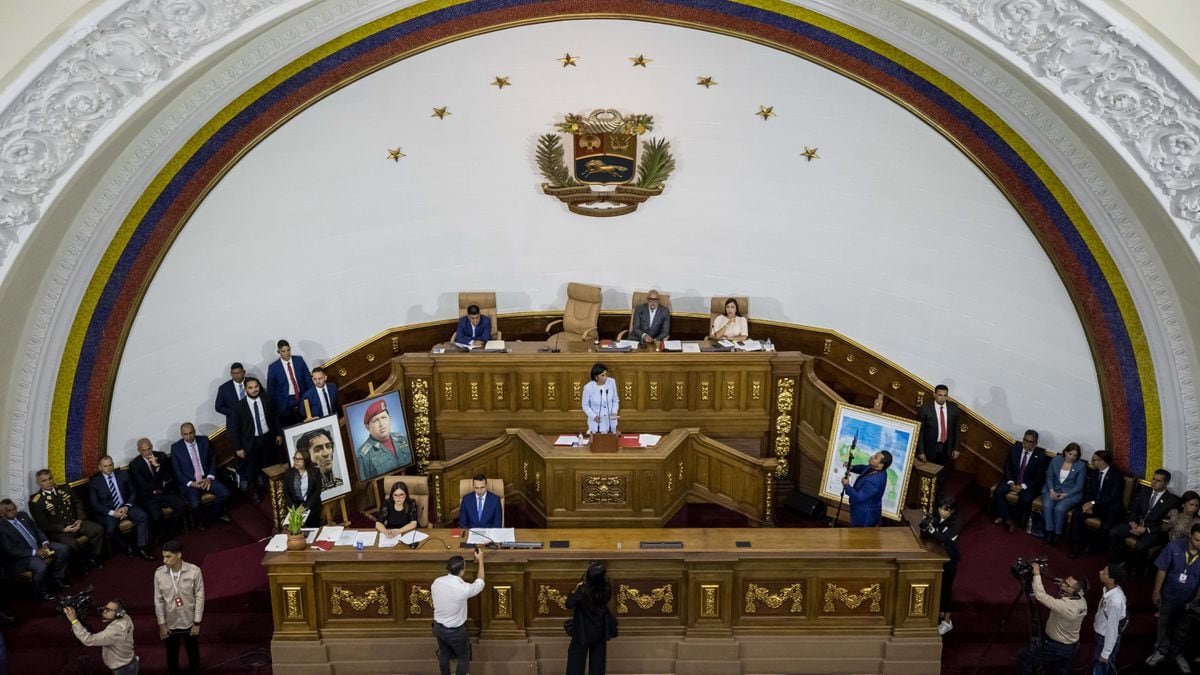

/cloudfront-eu-central-1.images.arcpublishing.com/prisa/Q6GXUFDARZGI5BCOMCTHWWYV4Y.jpg)
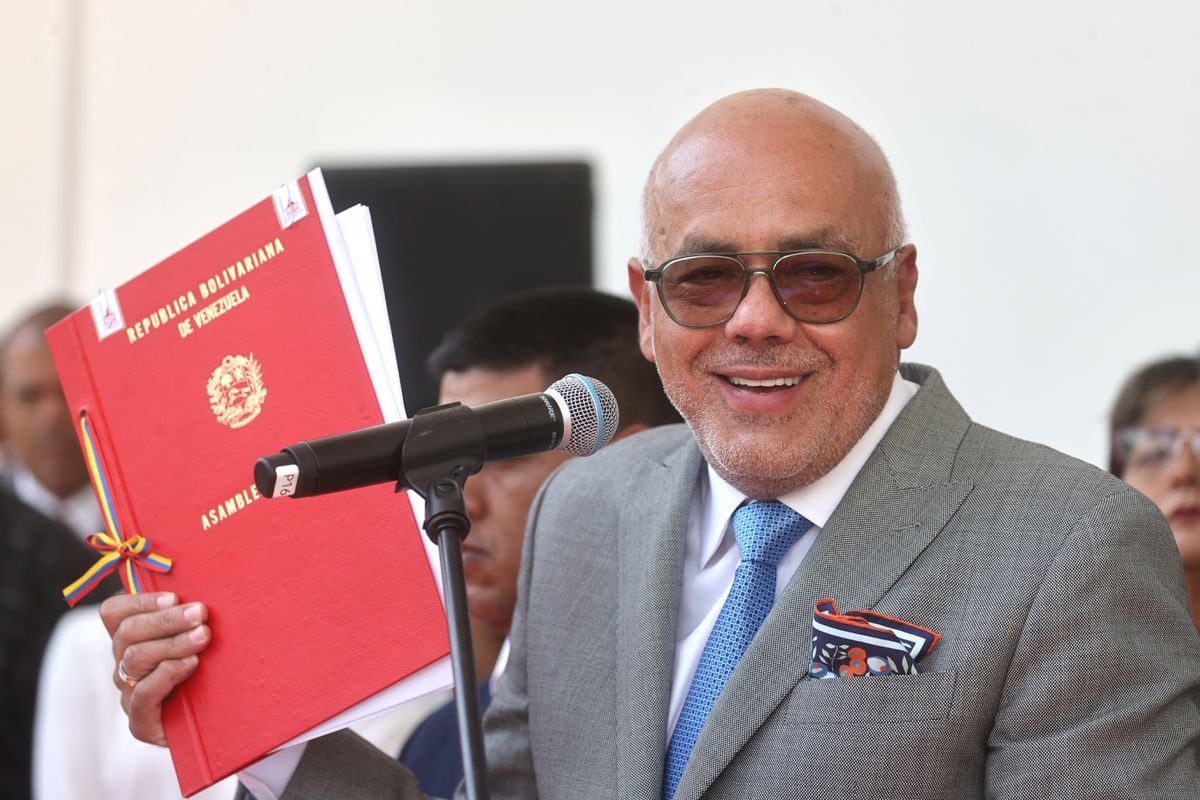
/cloudfront-eu-central-1.images.arcpublishing.com/prisa/FA33SV4ND6NXPGJU6YKNHAY4RA.jpg)
